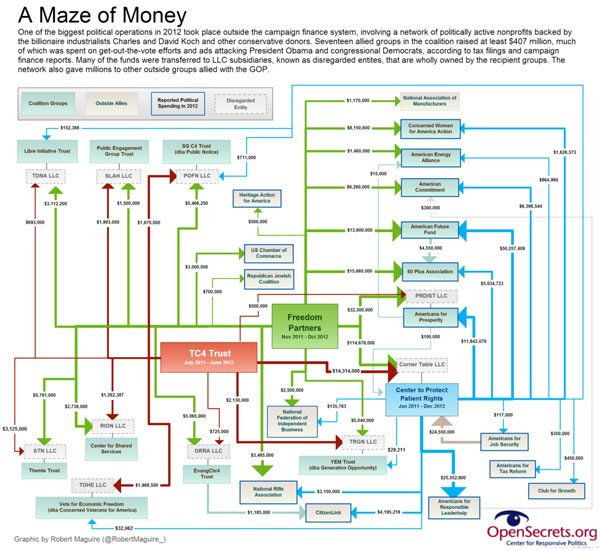
January 30, 2018; Washington Post
At a recently concluded gathering of wealthy, politically focused, conservative men and women, public education took a lead role in a strategy for long-term societal change. The annual gathering convened by billionaire industrialists Charles and David Koch focuses on galvanizing financial support for a political action agenda for upcoming election cycles. Beyond specific policy objectives, there is a desire to profoundly change our national ethos to more closely reflect their vision. This year, one of the platform’s key planks concerned the very nature of how we educate our children.
Beyond educating individual students, public schools have for more than a century served a critical role of forging democratic citizens. Political scientist Benjamin Barber described public schools as “not merely schools for the public, but schools of publicness: institutions where we learn what it means to be a public and start down the road toward common national and civic identity.”
According to the Washington Post, whose reporters were invited to cover portions of the three-day Koch Network gathering, “Charles Koch and his like-minded friends on the right are increasingly focused on melding the minds of the next generation by making massive, targeted investments in both K-12 and higher education. Changing the education system as we know it was a central focus of a three-day donor seminar.”
“We’ve made more progress in the last five years than I had in the last 50,” Charles Koch told donors during a cocktail reception. “The capabilities we have now can take us to a whole new level. We want to increase the effectiveness of the network by an order of magnitude. If we do that, we can change the trajectory of the country.”
Sign up for our free newsletters
Subscribe to NPQ's newsletters to have our top stories delivered directly to your inbox.
By signing up, you agree to our privacy policy and terms of use, and to receive messages from NPQ and our partners.
The Koch Network’s new strategic focus appears to move beyond debates over school choice, common core curriculums, and testing; instead, they’re working toward longer-term changes in societal thinking. The Network’s vision is one of highly tailored individualized learning, which leaves little space for education to support core democratic values. As the Post explains:
Leaders of the network dreamed of disrupting the status quo, customizing learning and breaking the teacher unions. One initial priority is expanding educational saving accounts and developing technologies that would let parents pick and choose private classes or tutors for their kids the same way people shop on Amazon. They envision making it easy for families to join to start their own “micro-schools” as a new alternative to the public system.
With an estimated $400 million in its war chest for 2018, the Koch Network is poised to push its views at the state and local level. According to the Post, Tim Phillips, the president of Americans for Prosperity, the 36-state grassroots network has more members in Wisconsin than the state’s teachers’ union.
Those who believe public education is a shared responsibility entrusted to local governments will surely want to resist this. Replacing “public” with “individual” is a radical change that could further divide our nation along racial and economic lines as well as serve to undermine notions of equal opportunity. The Koch Network has passion and money to fuel its work. How public school and nonprofit civic advocates respond to these assaults could greatly affect our future.—Martin Levine













